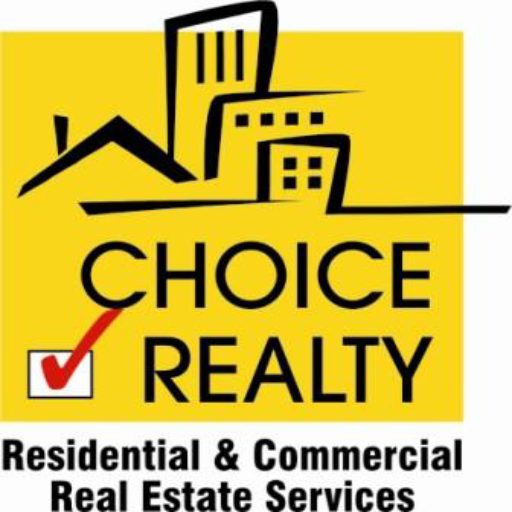Should Your Company Lease or Purchase?
Today’s Market (2016-2017) of low interest rates and rising rental rates, simply begs price and rental rate discounts, simply begs the question of what makes more sense—a commercial lease or purchasing space for one’s company. The only time that it is really appropriate to consider the Lease vs Own analysis, is when a company is considering a long-term (10+ years) lease commitment.
The Lease versus Own analysis is comprised of two considerations. One, is the straight financial analysis. This is where we compare the total cash outlays (after-tax) of the lease and of the purchase to determine the least costly solution. When we compare an owner’s or an investor’s cost of capital or opportunity cost with the internal rate of return (IRR) for differential cash flows between lease versus own numbers, we know that if the IRR is greater than the client’s opportunity cost, it makes more sense to buy. One must bear in mind, an investor’s personal situation, competencies, and goals can change the outcome of this analysis.
The other consideration is the qualitative data analysis. Lease advantages include the fact that a company can easily pick up and move at the end of the lease term. When they own a property, the timing of the sale may not be optimal and the market could be experiencing a downturn. Another consideration in leasing is focus–does the company want to be in the real estate property management business or not? It may be more prudent to lease and conserve what could be a 20% down payment for other uses to invest into the company.
Leasing Corporate Real Estate: Advantages and Disadvantages
Financial Advantages of a Lease
Availability of Cash
Most lease arrangements have fewer restrictions than loan agreements, providing flexible financing. In addition, leasing is well suited to piecemeal financing. A firm that is acquiring assets over time may find it more convenient to lease than to negotiate term loans or sell securities each time the firm makes a new capital outlay.
Flexibility
Leasing can provide more flexibility for many owners who may need cash to invest in their main business (salaries, equipment, etc.). It may be more prudent and profitable to use financing capabilities to run the core business than to invest in real estate to house the business. Avoidance of a downpayment frees up that money for other uses. Opportunity costs are important considerations for an investor.
Tax Relief
Leasing can provide some tax relief as the lessee can deduct the full amount of the lease payment for tax purposes.
Other Advantages of a Lease
Low Risk of Obsolescence
A lessee avoids the risks of obsolescence associated with ownership. If the actual salvage value is less than originally expected, the lessor bears the cost.
Stability of Costs
Leasing tends to smooth out expenses for a lessee. Lease payments are a continual outlay and earnings tend to appear more stable when assets are leased than owned.
Spatial Mobility
Leasing provides more flexibility if a company expands or contracts. It also allows mobility if a firm wishes to relocate.
Cash Flow
Most companies run on cash flow and are valued on cash flow. It is unfortunate when a business purchases property and loses money on the sale of the business due to reduced sales caused by lower inventory, equipment, training, etc.
Location
Leasing can allow the user to be at a premier location that would be unaffordable otherwise.
Focus
Leasing allows concentration on the primary business without the distraction of managing real estate.
Financial Disadvantages of a Lease
Cost
For a firm with strong earnings records, good access to credit, and ability to take advantage of tax benefits of ownership, leasing is often more expensive. Individuals and smaller firms may find that leasing and borrowing terms are approximately equal.
Loss of the asset’s salvage value
A lessee may have difficulty getting approval to make property improvements on leased real estate. If the improvements substantially alter the property or reduce the potential range of uses, the lessor may be reluctant to permit them. Potential uses can range from technological changes, physical changes to accommodate staff or cosmetic changes to impress clients.
Contractual Penalties
If a leased property becomes obsolete, a lessee may still be obligated to pay for the lease and may not cancel it without paying a penalty.
Taxation
Leasing provides limited tax relief.
Appreciation
Leasing does not provide participation in property appreciation.
Other Disadvantages of a Lease
Control
Leasing does not allow control of other tenants. New neighboring tenants may not conform to the type of image the lessee seeks.
Operational control
Lessees have no control over business amenities. A Lessor might cancel the lease on an inexpensive sandwich shop that was attractive to the lessee’s employees. New building personnel may not provide the same level of service as the lessee originally enjoyed.
Changes
The lessee may have to accept changes to the space that the lessor requires but the lessee opposes due to the disruption of its business.
Owning Corporate Real Estate: Advantages and Disadvantages
Financial Advantages of Owning
Tax Savings
The owner of a property is entitled to the tax savings resulting from cost-recovery rules, mortgage interest, and the cost of tenant improvements during the holding period and when the property is sold.
Appreciation
The owner of an asset is entitled to all of the appreciation in value.
Income
Income from tenants can be used to pay the mortgage on the property or may be used to fund the owner’s principal business or for other investments.
Other Advantages of Owning
Control
The user/investor who owns a building has, within the law, freedom to operate its building as it sees fit. Being able to control the appearance of a site and take advantage of the prestige of its location may be important to certain companies. Ownership allows control over costs.
Financial Disadvantages of Owning
Initial Capital Outlay
Cash downpayments to acquire a property may divert cash that could be used to finance the company’s operations or other investments.
Financing
Often a company’s ability to obtain a loan will not only depend on its financial condition, but also will depend on the financial marketplace.
Liability
A mortgage loan can affect the balance sheet (increasing long-term debt) and the related debt restrictions imposed by lenders.
Legal Compliance
Compliance with changes in laws or zoning may be unforeseen, costly, and unavoidable.
Other Disadvantages of Owning
Risks
There are risks to owning, such as potential damage, obsolescence, and the inability to sell at preferred prices at the right time.
Responsibility
The lessor is responsible for the safety and well-being of tenants, employees and the public within and outside the building.
Inflexibility
Space may be inflexible and cannot be enlarged or reduced depending on business fluctuations or other forces.
sources: User Decision Analysis for Commercial Investment Real Estate, Commercial Investment Real Estate Institute (CCIM)1999.

